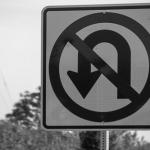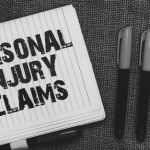You may be thinking, “Wait, why are you writing an article about Traumatic Brain Injuries? I thought those injuries only happened in soap operas or movies?” While Traumatic Brain Injuries (“TBIs”) sound like something that only happens on TV, they are actually more common than you realize, and TBI symptoms are often overlooked. Although TBIs have been recognized more in the media recently because of head injuries in the NFL, TBIs are still misunderstood and misdiagnosed.
What Is A Traumatic Brain Injury?
A TBI is a brain injury that occurs when a sudden trauma causes damage to the brain. TBIs can occur during a motor vehicle collision, sports injury, fall, assault, etc. Each person can have different physical, sensory, or cognitive symptoms, and TBIs can range from mild to severe. No two brains are alike, which means no two TBIs are alike. Two people can undergo the same type of incident under similar circumstances but have different outcomes. While one person may have sustained a mild TBI, the other may not have a brain injury at all.
TBIs can also last for varying lengths of time, and some symptoms may not appear until days or weeks following the injury. TBIs are often misdiagnosed as age-related changes or psychiatric issues, especially if the injured person has had psychiatric issues in the past. Commonly after a trauma, a mild TBI can be overlooked in the midst of more immediately identifiable injuries. For these reasons and others, it is important to know the signs and symptoms of a TBI.
Signs And Symptoms Of A TBI
According to the National Institute of Neurological Disorders and Strokes, physical symptoms of a mild traumatic brain injury can include:
- Loss of consciousness for a few seconds or minutes;
- Headache;
- Confusion;
- Lightheadedness;
- Dizziness;
- Blurred vision or tired eyes;
- Ringing in the ears;
- Bad taste in the mouth;
- Fatigue or lethargy;
- A change in sleep patterns;
- Behavioral or mood changes; or
- Trouble with memory, concentration, attention, or thinking.
A person with a moderate or severe TBI may have the same symptoms as someone with a mild TBI, but they might also experience additional, enhanced symptoms: a headache that gets worse or does not go away, repeated vomiting or nausea, convulsion or seizures, an inability to awaken from sleep, dilation of one or both pupils of the eyes, slurred speech, weakness or numbness in the extremities, loss of coordination, and increased confusion, restlessness, or agitation.
I Think I Have A TBI. What Should I Do?
First, you need to visit your doctor immediately about the symptoms you are experiencing and ask for TBI testing. To diagnose a TBI, your doctor or another specialist may use one or more tests that can assess your physical injuries, brain and/or nerve functioning, and level of consciousness. For more information about these tests, click here. If you have a TBI, you may need to go through additional treatment programs in the areas of physical therapy, occupational therapy, speech/language therapy, psychology/psychiatry, or social support.
Second, if you are starting a lawsuit due to your injuries, it is very important to discuss your symptoms with your lawyer and keep your lawyer updated on any TBI testing or treatment. It is also important to make a list of the people in your life who have noticed changes in your behavior, memory, or mood. Your lawyer may want to talk with these individuals and may have them testify at trial. This type of evidence can be valuable to show how this injury has changed your life. TBIs are often viewed as an “invisible injury” because a person with a TBI often appears normal and physically healthy, so this type of testimony is especially important.
And finally, be sure to read part two and part three of our traumatic brain injury blog post.
If you have been injured and are looking to consult with an attorney, please give our Personal Injury Team a call at 701-297-2890 or send us an email using the contact form below. All consultations are free of charge, and any case for personal injury is on a contingency fee basis only, meaning we only recover fees if we are able to get you compensation for your harms and losses.
The information contained in this article and on this website is for informational purposes only and not for the purpose of providing legal advice. You should contact an attorney to obtain advice with respect to any particular issue or problem you may have related to your injuries.










